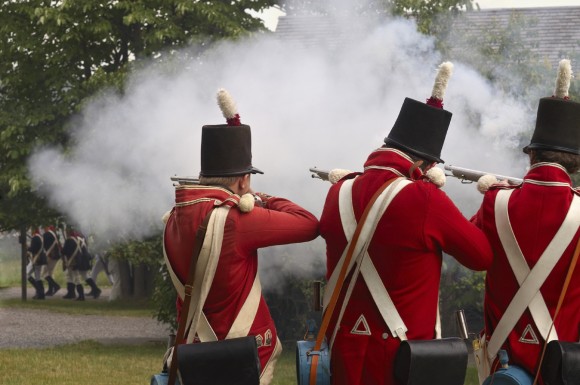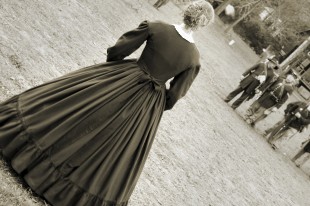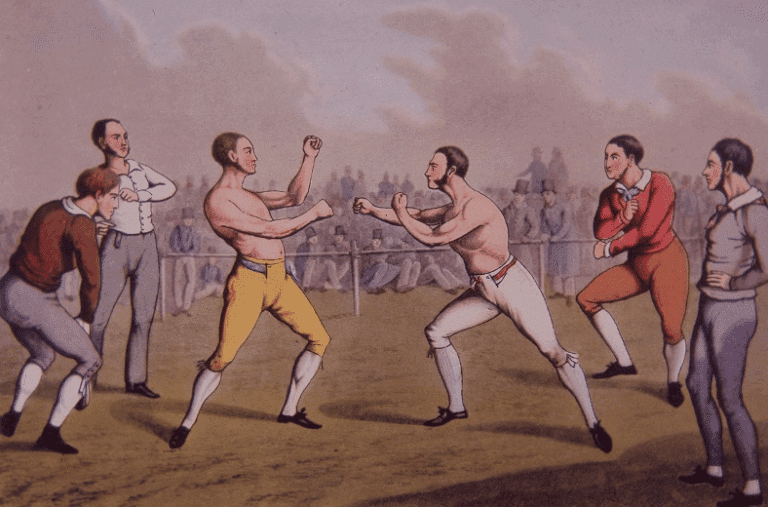
J.C.A. Stagg
Cambridge University Press, 198 pages, $24.95
Reviewed by Peter Shawn Taylor
It has become common shorthand among popular historians to characterize the War of 1812 as a “forgotten war.” Whether this was ever true in Canada, it certainly is not the case today as we mark its 200th anniversary.
More than 110 books have been published in North America on the war this year alone, and another 880 or so are still in print, suggesting a healthy appetite among readers. Thanks also to a barrage of federal attention and cash, the bicentennial has gained a prominence rarely seen for a military event in Canada. Federal Heritage Minister James Moore has repeatedly declared the conflict to be a pivotal moment in our history, claiming, “Canadian identity was largely shaped by the War of 1812.”
In keeping with Ottawa’s keen interest in the conflict, there is a $28-million fund for re-enactments, historical sites and other remembrances. A new statute honouring the war will soon be erected in a place of prominence on Parliament Hill. In addition, every arm of government seems to have been recruited in commemorating the conflict. Matched stamps from Canada Post honour Major General Isaac Brock and Shawnee war chief Tecumseh. The Royal Canadian Mint will also be releasing a new set of quarters bearing the likenesses of Brock and Tecumseh, as well as shop keeper’s wife/hiker/chocolate icon Laura Secord and Quebec militia leader Lieutenant Colonel Charles de Salaberry.
And yet, for all this recent familiarity, how much of this war do Canadians really grasp? The storyline provided by the federal government offers plenty of information and imagery about the conflict as it was fought in the woods and fields of Ontario and Quebec. But is this the whole story? And what to make of the obvious political undertones surrounding the bicentennial?
Moore, for example, has been explicit in using the war as a counterweight to previous Liberal government claims that specific Liberal accomplishments such as medicare and the Charter of Rights and Freedoms have defined Canada. “There is this leftist mythology that Canadian history began with the election of Pierre Trudeau,” he told Maclean’s last October. “That’s utterly irresponsible. There is a Canadian identity that goes back much farther.”
Or consider more closely the Canadian Mint’s decisions about which heads to put on quarters. Brock, mastermind of the unexpected British victory at Fort Detroit in 1812, is the obvious choice to represent the professional army. Tecumseh stands in for the crucial contribution of natives in the conflict. Secord signals the role of Canadian settlers while providing a feminine touch. And de Salaberry, hero of the battle at Châteauguay, gives the federal project a necessary French-Canadian component. Central casting could not do a better job of hitting all the necessary demographics.
In fact, the ability of the War of 1812 to produce an inclusive, everyone’s a winner narrative goes a long way to explaining why it features so prominently in the Harper government’s nation-building efforts while the equally significant 250th anniversary of the Battle of the Plains of Abraham and the conquering of New France by Great Britain came and went in 2009 with nary a commemorative stamp or quarter in sight.
Of course, there is nothing historically inaccurate about what Ottawa is doing. The War of 1812 was definitely an important event. The issue arises from the fact that each nation involved has selected its own history and heroes with similar care, single-mindedness and political purpose.
Canada sees the war as an American war of aggression, celebrating Brock’s victories, lauding the contribution of Tecumseh and his warriors and noting the efforts of brave residents in both official languages. Oh yes, and we also burnt the White House.
The United States, on the other hand, views the war quite differently. Americans tell themselves tales of impressive naval victories against the mighty Royal Navy, the brave defense at Fort McHenry in 1814 (which gave rise to their national anthem) and their slaughter of the British at New Orleans in the final battle of the war.
Great Britain has traditionally ignored the War of 1812 in favour of the more familiar Napoleonic Wars. Lately, however, British historians have turned their attention to their nation’s very successful naval blockade of the U.S. seaboard in 1813 and 1814 that pushed the U.S. federal government into financial collapse.
In this way, everyone gets to brag about a successful war. (The fourth nation involved, that of North American natives, admittedly has not been able to keep up with this competitive history; it is pretty hard to construct a narrative that sees them coming out on top.)
All of which raises a problem for fair-minded armchair historians: how to get beyond the political iconography and nationalist spin to properly comprehend the war as a whole? And preferably without a reading list longer than the war itself. A welcome solution to this dilemma is the newly published The War of 1812: Conflict for a Continent by J.C.A. Stagg.
While intended for an undergraduate audience, Stagg’s book delivers a highly readable summary of the war in all its facets and locales for readers everywhere. And at a mere 170 pages, the book is a miracle of concision.
Stagg begins with an illuminating survey of the differing ways in which the war has been remembered in North America.
Successive generations of American and Canadian historians developed two parallel streams of historiography about … the War of 1812 in their national narratives, with little thought being given to the possibility that the streams might, or should, intersect,
he writes. The University of Virginia historian tries to cross these streams, so to speak, by adopting a broad, continent-wide perspective.
In addition to integrating the familiar (and mostly justifiable) stories of how the British, Canadians and Americans all won the War of 1812, Stagg explains how these stories relate to two overlapping Indian wars.
The Battle of Tippecanoe in November 1811 − at which future president William Henry Harrison attacked native forces under Tecumseh in present-day Indiana − marked the beginning of the War in the Old Northwest, a conflict that should properly be considered the precursor to the War of 1812. This was the event that pushed Tecumseh, who was attempting to build a native confederacy to repulse westward American expansionism, into partnership with Brock. It is also necessary to recognize that Tecumseh’s objectives did not always correspond with those of the British. After Brock’s death, Tecumseh and his war were as much an obstacle as a benefit to the British crown. The Battle of the Thames, near Chatham, Ontario, ended Tecumseh’s life and his crusade.
The 1813 Creek War in Georgia, Alabama and Florida, also encouraged by Tecumseh, is another crucial component to the broader war that is often left out of most Canadian histories. Here, another future president, Andrew Jackson, took on another Indian nation and cleared another large swath of land for white settlers. It was with this conflict in mind that the British sailed to New Orleans; in collaboration with the Spanish colonial government in Florida, the British hoped to foment a subsequent native rebellion and destabilize the South. It did not work.
When Americans talk of the War of 1812 as a victory, their greatest justification is in crushing the native armies of the Old Northwest and South, setting up the end of Spanish rule in Florida and solidifying their grasp on the bulk of North America.
Further, the Napoleonic Wars are often considered merely a colourful backdrop to the War of 1812. In fact, the French emperor was a crucial player in much of what was happening in North America, as his frequent appearances in Stagg’s work suggest.
As editor of U.S. president James Madison’s personal papers, Stagg brings a different perspective to the debate over the origins of the war. The conventional view holds that British trade practices and the impressment of American sailors pushed U.S. war hawks to advocate the seizure of Canada. The famous quote from Thomas Jefferson that conquering Canada would entail a “mere matter of marching” neatly encapsulates this perception of American pre-war hubris. But if the goal was a Canadian land grab, why, Stagg asks, does the final paragraph of Madison’s 1812 war message ask Congress to consider declaring war on France as well?
In fact, U.S. relations with France were as badly strained as their relations with Britain were during this time. Rather than a neighbourhood bully attempting a continental takeover, Stagg sees the United States as a nervous young nation trying to find its place in a world dominated by much older and stronger powers. “A new and weak republic tried to impose its will on circumstances that were largely beyond its control,” he writes. Stagg also concludes that Madison never intended to seize permanent control of Canada. His goal was simply to use Canadian territory as a lever to wring concessions out of the British government. As such, Canada would likely have survived even if the U.S. invasion had been successful.
The War of 1812 was a complex event that included at least three separate but linked wars played out in parallel with a much larger conflict in Europe. Thanks to the efforts of Ottawa, Canadians are hearing quite a bit about one small part of this war. Stagg’s book is a good place to start for anyone seeking the rest of the story.
~
Peter Shawn Taylor is an editor at large at Maclean’s. He frequently writes about issues in Canadian history, politics and public policy. He can be reached at [email protected].






